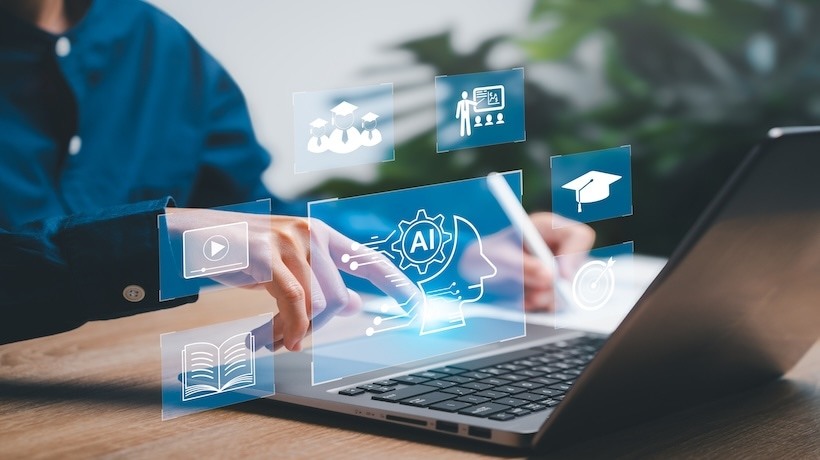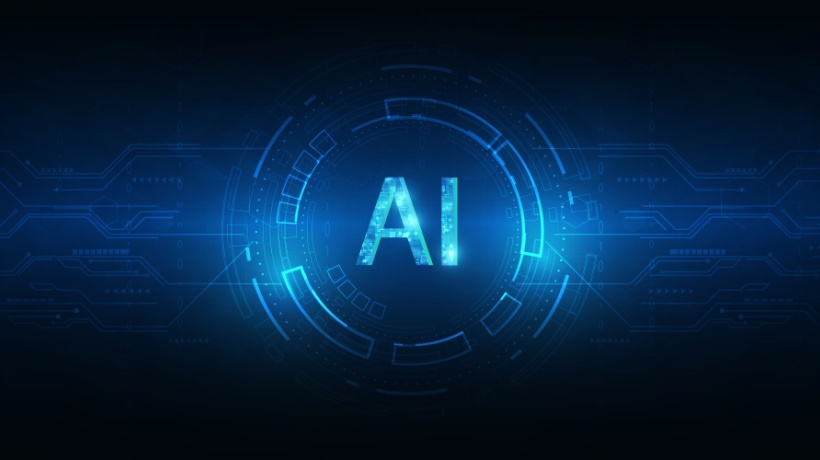An Expert Panel Discusses AI In L&D
At a conference in September 2023, a panel discussion on the topic included:
- Elliot Maisie, from Maisie AI and Learning Lab
- Myra Rolden, from Machine Learning University at Amazon
- JD Dillon, Chief Learning Architect at Axonify
- Christopher Lind, of Learning Tech Talks and CLO at ChenMed
- Kim Morick, Associate Partner, Data and AI at IBM
- Claudio Erba, CEO at Docebo
“Technology is helping us step even further to both accelerate our ability to support and get resources and information to the people who need it, and decentralize that concept,” said JD Dillon, chief learning architect at Axonify. Let's delve deeper into the specifics of how Artificial Intelligence (AI) could revolutionize the Learning and Development (L&D) sector.
Ways AI Could Revolutionize L&D
1. Personalized Learning
One of the standout features of AI is its ability to deliver personalized experiences. In the context of L&D, this means learning pathways tailored to an individual's needs, preferences, and performance. Gone are the days of one-size-fits-all learning materials.
With AI, learners can receive recommendations for relevant content based on their current understanding, learning preferences, and career goals. Additionally, feedback can be customized, ensuring that learners know where they're excelling and where there's room for improvement. The result? Enhanced engagement and improved learning outcomes. “We need to empower AI to do the job,” says Claudio Erba, CEO at Docebo, “The more data AI has about the content and what happened in the organization, the more it can offer in terms of hyper-personalization."
2. Adaptive Learning
Learning isn't static. As a learner progresses, their needs evolve. AI-powered adaptive learning systems ensure that the content and challenges adjust in real time to the learner's progress. If a learner is excelling, the program will present more advanced material. Conversely, if a learner is struggling, the program might review foundational concepts. By always presenting content at the right difficulty level, learners remain engaged and can progress at their own pace.
3. Microlearning: Learning In Bite-Sized Chunks
The modern learner is often on the go, seeking information quickly and frequently juggling multiple responsibilities. Microlearning, powered by AI, offers short, focused modules that learners can engage with during a brief break or while commuting. AI can recommend these bite-sized lessons based on a learner's current focus, ensuring that even in short spans, productive learning can take place.
4. Social Learning: Building Learning Communities
While technology has made learning more accessible, the human element remains irreplaceable. AI facilitates social learning by connecting learners with peers and experts in their fields. Through AI algorithms, learners can be paired with those at similar stages or with those who have complementary skills, enabling collaborative learning, knowledge sharing, and mutual support.
5. Improved Learning Outcomes With AI
With AI's ability to provide personalized and adaptive experiences, learners find content more engaging and relevant. The tailored feedback and real-time adjustments ensure that learning gaps are addressed promptly. Numerous studies have demonstrated that AI-powered learning initiatives boost both engagement and content retention.
But, again, this goes back to personalization which requires data. “One of the things we have to start with just from a confession point of view is that the Learning and Development area is not very good about data,” says Elliott Masie, “We walk the talk, but we don't actually have the action piece.” A co-development of data skills within the L&D department alongside burgeoning AI tech is crucial to see the full benefits of both.
6. Reduced L&D Costs Through Automation
AI's capabilities extend beyond just content delivery. It's playing a pivotal role in automating tasks traditionally undertaken by L&D professionals, such as content creation, grading, and assessment. With AI handling these tasks, L&D teams can allocate resources to more strategic areas, like content innovation and deepening learner engagement strategies.
7. Increased Scalability: Reaching More Learners Efficiently
Scaling L&D initiatives traditionally meant more resources—both human and material. AI challenges this norm. AI-powered chatbots, for instance, can cater to queries from thousands of learners simultaneously, offering 24/7 support without human intervention. This ability to scale without proportionally increasing resources has made quality L&D accessible to a broader audience.
There's a lot of rote, mundane robotic work that happens in Learning and Development that can be optimized through Artificial Intelligence. And I think that's, if anything, that should be really exciting to us, and not something we should be afraid of," said Christopher Lind, CLO at ChenMed. “Because that's going to give us more time ideally to spend that time doing higher order activities rather than putting information into a document or putting it into some sort of package. We can be spending time actually understanding what the situation is and who our audience is and things like that. So we're actually having meaningful conversations. So I think that's really powerful if we use it right."
In Conclusion
The integration of AI in the realm of Learning and Development is not just about leveraging new technology, it's about fundamentally enhancing the learning experience for individuals. By offering personalization, adaptability, and scalability, AI could revolutionize L&D initiatives by ensuring that they are not only more effective but also more efficient and far-reaching. As AI continues to evolve, it's poised to usher in even more revolutionary changes in how we approach Learning and Development. Embracing these advancements will be key for organizations and educational institutions seeking to offer the best possible learning experiences in our rapidly changing world.









